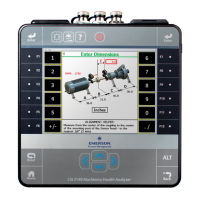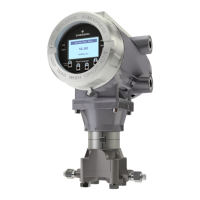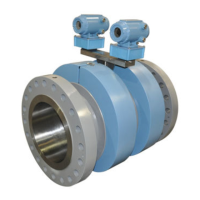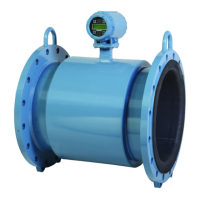high spot The location of the rotor where peak vibration occurs in response to the heavy spot.
Heavy spot differs from high spot due to system lag.
high-frequency
detection, HFD
The amplitude of vibration in g's over a broad frequency band from 5 kHz up to 20
kHz or greater.
individual analysis
parameters
See vibration parameters.
induced soft foot A type of soft foot that is caused by external forces, such as coupling or pipe strain,
acting on a machine independent of the foot to baseplate connection.
influence coefficient
method, ICM
The method used by the Balancing programs to calculate balancing solutions.
job Stores data collected during a measurement.
lines The number of lines of resolution used for the spectrum calculation. Resolution (in
Hz) equals maximum frequency divided by the number of lines.
measurement point Any location or point on a machine where measurements are made.
micron A metric unit of measurement (one millionth of a meter).
mil A unit of measure for displacement (one thousandth of an inch).
modulation Instantaneous variations in a signal's characteristics. May be amplitude (AM) or
frequency (FM) modulation.
multiplane
balancing
A method of balancing a piece of equipment that allows the measurement of the
imbalance weights at several planes along the shaft of the equipment. Correction
weights are then added in each of these planes. Multiplane balancing is usually
required when a piece of equipment has several rotating elements, such as
flywheels, tightly coupled on a shaft and closely spaced.
multiple route load
(MRL) file
A special file that enables multiple routes to be loaded to and from an analyzer. MRL
files are stored in the user's directory and indicated by the *.MRL file extension.
Navigator An element of AMS Machinery Manager that displays the hierarchy of a database.
notes
Specific observations that can be stored on the measurement point of a piece of
equipment along with collected data. Notes can be predefined from the database or
entered on an analyzer.
orders Multiples of equipment turning speed (1xRPM, 2xRPM, 3xRPM, etc.).
peak The largest signal level seen in a waveform over a period of time. For sinusoidal
signals, the peak signal level is always 1.414 times the RMS value of the signal level.
For non-sinusoidal signals, the peak level is often larger than the result that this
formula would produce.
peak-to-peak The difference between the maximum and minimum signal levels over a period of
time. For a pure sinusoidal signal, the peak-to-peak level is two times the peak signal
level and 2.828 times the RMS value of the signal level. For non-sinusoidal signals,
the peak-to-peak level is often larger than the result this formula would produce.
period Time required to complete one cycle in a periodic signal.
phase 1xRPM phase represents the location of the shaft of a piece of equipment in degrees
(0 - 360) with respect to the tachometer pulse where the largest vibration occurs.
Glossary
MHM-97432 Rev 7 387
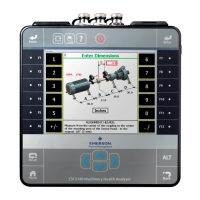
